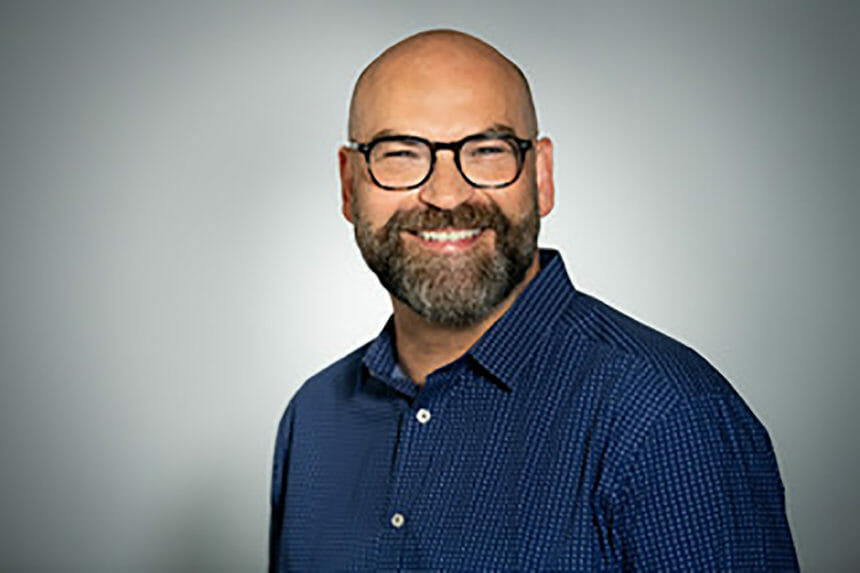June is Pride Month, a time to celebrate the contributions of the LGBTQIA+ community and honor the legacy of the 1969 Stonewall Riots.
In the broader healthcare industry, members of the LGBTQIA+ community continue to support efforts that empower its members and recognize their contributions to today’s business. Since 2015, OUTBio has served as a premier professional networking group for LGBTQIA+ workers.
MM+M spoke with Ramsey Johnson, president and founder of OUTBio, about the importance of LGBTQIA+ representation in the biotech sector — and where there is room for improvement. This interview has been lightly edited for length and clarity.
MM+M: What is your assessment of the current state of the LGBTQIA+ community in the biotech sector?
Johnson: In general, biotech and pharma is doing a great job showing support for the LGBTQIA+ community. Frequently, I see employee resource groups that are focused on the community and that’s a big change from seven years ago when OUTBio started.
Probably the reason we got so big so quickly is because there was a lack of ERGs and LGBTQIA+ initiatives in biopharma companies. People were looking to OUTBio as an outlet to show support to the community and for our members to meet one another, have a place to interact, and I’ve seen that change a lot.
Small to medium-sized companies have grown in terms of their support of the LGBTQIA+ community and starting their own diversity, equity and inclusion initiatives. Luckily, that hasn’t impacted OUTBio much, I think they still show support to OUTBio as a way of showing support to the community, but they’re their own things internally as well.
Can you talk about the value that comes with representation in the industry, specifically in the C-suite?
Representation is huge. We talk about this all the time: People are looking to see people like themselves in the C-suite. It’s what drove the creation of our mentor program. When we sent out our surveys, the message was loud and clear that people wanted to see folks like themselves represented in leadership and wanted to be mentored by people like themselves.
Early on, it was harder to find people that weren’t cis white men. Even on the OUTBio board, we struggled to find people that weren’t cis white gay men. But like everything else, it’s changing. You see a lot more diversity across the C-suite and you see more diversity in board representation at companies.
You see people like Jennifer Petter, who is the chief innovation officer at Arrakis Therapeutics and is on our board. She’s an out and visible Trans woman. That is so important because once someone sees somebody like themselves represented in leadership or in the C-suite, they’re hopeful and feel like they can see themselves there. Whereas 15 years ago, they wouldn’t have dreamed of it.
There’s obviously still room for improvement. We always want to see more people of color represented in the C-suite and more LGBTQIA+ people represented in the C-suite, so we’re always looking for that.
Where do you see opportunities for growth and room for improvement?
Johnson: I’m all for increasing diversity across boards. People will ask, ‘How can I show my support as a gay person or as a trans person to the community?’ They may not be comfortable speaking publicly or the type of person that goes out and waves a pride flag in front of city hall. My response is always, ‘You don’t have to do any of that and I’m not like that either.’ I hate speaking in public. I’m not about waving a pride flag in front of anyone, but my contribution and the way that I feel like I have contributed to the community is to be outspoken, visible and authentic.
I never make it secret about the fact that I have a husband and I always try to be vocal with pronoun usage. That’s my way of being visible and authentic, and that’s what I tell people: Just be visible. If you’re a gay man or a gay woman, be authentic, open and vocal. Talk about your partner, your husband, your wife and your kids. That’s the way to bring about change and diversity in the C-suite. Those people are already there in leadership positions; they just may not be as vocal and as authentic as we would like them to be.
That’s always what I’m pushing for: People to be authentic and to speak openly about how they identify or the fact that they’re allies to the community.
How can brands more genuinely and effectively market during Pride Month?
Johnson: I always tell people, ‘You don’t need to recreate the wheel to show support for the community. It’s not rocket science.’ Host an OUTBio event or walk in a pride parade. There are things that you can do to visibly show your support for the community and I know that OUTBio members look for those things when they’re seeking out new jobs.
If a company has sponsored an OUTBio event, walked in a pride parade or donated to LGBTQIA+ causes they support, people are looking for that. They know now that the industry is primed with job opportunities; there’s so much growth that it’s becoming a factor in somebody’s decision to join a company. How supportive are they of the LGBTQIA+ community and how likely is it that that person is going to be able to be authentic at work every day? It’s starting to become a factor in someone’s decision of whether or not they join a company.








